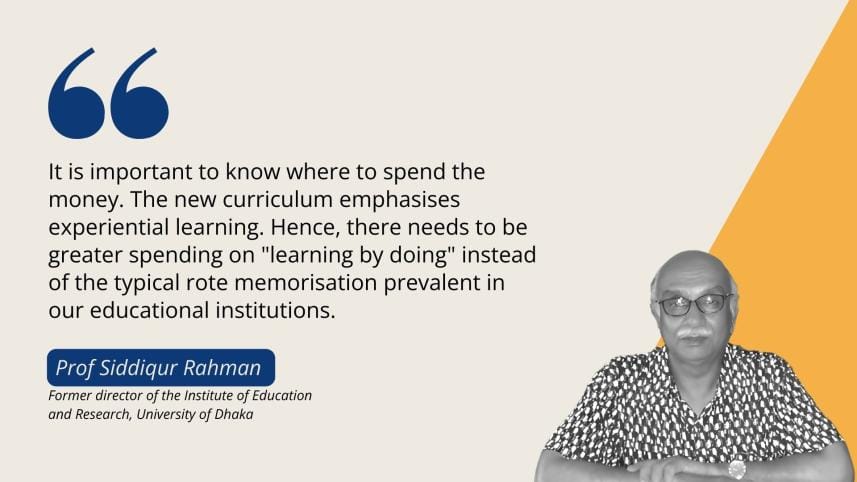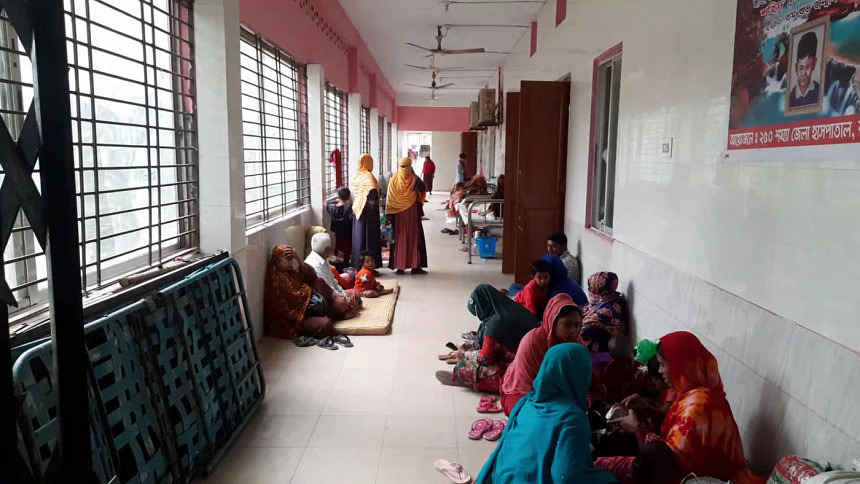FY25 budget reaction: Invest more in the new curriculum

I am not a proponent of a sudden increase in spending on education. Rather, I believe it is more viable to opt for an incremental increase over several years. A high increase in the amount allocated to education will result in a mismanagement of spending as there is a lack of capacity in the concerned bodies; it will not be productive.
It is important to know where to spend the money, as the same increase cannot happen across every part of the educational sector. The new curriculum emphasises experiential learning. Hence, there needs to be greater spending on "learning by doing" instead of the typical rote memorisation prevalent in our educational institutions.
In addition, we must also pay attention to classroom size. A class should not have 60-70 students, but rather approximately 25 students. The solution is of course to increase not only the number of classrooms but have more teachers. It is imperative that we work on training teachers well, pay them a higher salary, and provide them more opportunities. Many issues continue to exist in this aspect. Even when teachers are trained, many are unable to implement it in the classroom. We need capable teachers.
Returning to the new curriculum, its focus on experiential learning may mean there is greater need for spending on educational resources. This may have to be covered by parents, the school, or the government. In the case of students in rural areas, it may often be difficult for parents to bear the cost of educational supplies.
Attention must also be paid to the recent spate of heatwaves across the nation. While there seems to be greater emphasis on physical facilities, we need to also consider the health of students. If the health services are poor, the students will suffer and their performance and learning will be hampered. If not an AC, at the very least, fans should be ensured in every school. It could also be that schools have health screenings so that if there is a minor issue, the medical professional in school may treat it, while if it is a major issue, the school can refer the student to a medical institution with the capacity for treatment. However, with the high number of students, this can be difficult to accomplish.
Moreover, in many places such as in rural schools, students may have classes from morning till well into evening. It is important to reduce the timings of these school days and have facilities such as school lunches to nourish students and help them focus.
Lastly, the matter of mental health must be considered, particularly considering its link to student suicides. There should be teacher-student rapport, and not a fearful relationship. Teachers should foster a close relationship with students so the latter feel comfortable with the former. Harsh treatment of students, such as corporal punishment, can have highly detrimental effects on students, discouraging them from coming to school and even making them associate learning itself with negative feelings. While some may propose having a school psychologist in every institution, it may be much more feasible to train teachers on the subject of child psychology when they are receiving their training, as psychologists may not be able to sufficiently pay attention to the high number of students and their needs in the appropriate way.
Increasing the allocation for education and health remains vital, as they impact the human capacity of the nation.
As told to Aliza Rahman of The Daily Star.
Prof Siddiqur Rahman is the former director of the Institute of Education and Research at the University of Dhaka.
Views expressed in this article are the author's own.
Follow The Daily Star Opinion on Facebook for the latest opinions, commentaries and analyses by experts and professionals. To contribute your article or letter to The Daily Star Opinion, see our guidelines for submission.



 For all latest news, follow The Daily Star's Google News channel.
For all latest news, follow The Daily Star's Google News channel. 


Comments